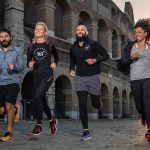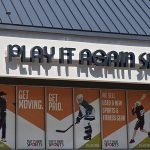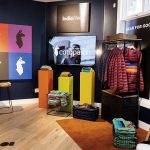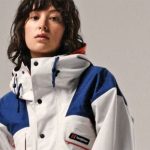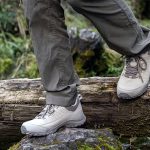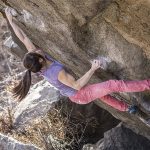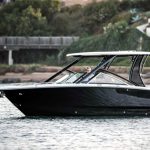CenterStone Technologies, Inc., an international developer of Web-based B2B e-commerce software for manufacturers selling through specialty retail channels, has released its business metrics for the first third of the calendar year, and some new trends are becoming clear. The companys iVendix application provides a business-to-business (B2B) on-line ordering solution for specialty retailers and sales reps to view automated catalogs, check product availability, place orders, and track and monitor the status of those orders 24/7 via the Web.
“Now that were through the first third of the year, we can make several interesting observations. Our monthly business metrics show some pretty dramatic changes in on-line usage and buying patterns, said Tom Detmer, CEO of CenterStone Technologies. “Logins overall are up 31%, and the number of orders is up 15%. The logins to orders ratio is growing, which may mean that retailers are more actively monitoring supplier inventory levels and trying to plan additional purchases closer to their window of need. This growth in the logins to orders ratio, probably means that all users need more information such as price and inventory availability before they feel comfortable making a purchase. Dollars through our system are down 7.5%, even though we have several large, new clients up on the system. Looking deeper into these overall numbers, we see that dealer logins are up 35% over last year, and sales rep logins are up only 23%. The actual number of orders from dealers is up 39%, whereas the number of orders from sales reps is flat, further evidence to support some recent industry data indicating that large pre-season orders may be declining as dealers seek a more continuous flow of inventory to better manage their inventory levels, turn and cash flow. Smaller, more frequent in-season just-in-time are becoming more prevalent as dealers grow more risk averse about taking on large pre-season inventories.”
Didi Nolan, who heads up the CenterStone retailer and sales rep support team, has seen an increasing number of sales reps promoting B2B to their dealers and helping their accounts get set up and trained to place their own orders online. This would also support dealer orders being up and sales rep orders being flat.
“We know that adding clients will skew all numbers positively, but the bottom line in all of this is that we can say definitively, that dealers have become much more active using our B2B application over these last 12 months. Another way this shift expresses itself is in the change reflected in another CenterStone metric, the dealer to overall revenue through the system ratio. This has increased from 19% to 21%, which represents a 10% percent change toward dealers in the last 12 months. We suspected this might happen, but the numbers definitely show it is changing. Whether its the economy or just the natural adjustment to Web-based B2B e-commerce . . . it is changing. And, by extrapolation if a vendor doesnt have a B2B connection to his/her dealer base, they are probably losing a growing amount of revenue to competitors who do,” continued Detmer.
Brands currently using CenterStones Software-as-a-Service (SaaS) platform and making the companys solutions available to retail customers and sales reps include: The North Face, JanSport, Vans, Reef and VF Imagewear, part of VF Corporation (NYSE: VFC); Pearl Izumi; Marmot Mountain, Ex Officio and Marker Apparel, brands of Jarden Corporation (NYSE: JAH); Under Armour (NYSE: UA); Helly Hansen; Perry Ellis Intl. (NASDAQ: PERY); Geneva Watch Group; Cleveland Golf; SmartWool, part of Timberland (NYSE: TBL); RipCurl; 180s; Sport Obermeyer; Smith Optics; Rossignol; Dale of Norway; ONeill Clothing; Hot Chillys; Petzl; Icebreaker; Four Star Distribution (C1RCA); Fresh Produce Sportswear; Yakima Products; Billabong (ASX: BBG); Patagonia Europe; Life is good; New Balance; The Orvis Company and others.

